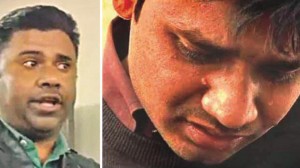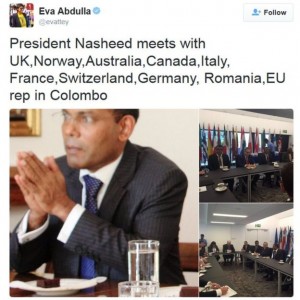Airlift review: Akshay makes this a touching, heart-wrenching affair
Airlift
Director: Raja Krishna Menon
Cast: Akshay Kumar, Nimrat Kaur, Purab Kohli, Prakash Belwadi
Rating: 3.5/5
Raja Krishna Menon brings Akshay Kumar back onscreen as Ranjit Katiyal with Airlift – a film based on India’s massive evacuation of its citizens from Kuwait in 1990.
The film’s narrative begins on the D-day – August 1, 1990 when Iraq president Saddam Hussein attacked Kuwait. Ranjit, a business tycoon, has closed a few deals, bought one of the most-sought after palaces in town and trumped a friend-cum-business rival. He can’t wait to get home to celebrate. The same night, Iraqi forces attack the city and are running a riot.
Menon peels back the layers to Ranjit’s personality. Though of Indian origin, Ranjit detests being identified as an Indian. Also as one of Kuwait’s richest businessmen, he is full of himself and money is all that seems to matter. Akshay’s first dialogue – ‘Profit explains everything’ – is a key insight into Ranjit’s psyche. This is significant as the plot line builds from here.
The context established, Menon wastes no more time and 10 minutes into Airlift, the plot is already racing. Soon enough all hell breaks loose with blood-thirsty Iraqi soldiers wreaking havoc and Ranjit becomes an unlikely saviour for the 1,70,000 other Indians stranded in Kuwait, including his family.
Though an action-packed story, Airlift’s strength lies in the turbulent emotions of people at the mercy of each other’s generosity and self-preservation. Ranjit is suddenly acutely aware of the people around him including hundreds of his employees. Touching scenes like the interaction between Ranjit and his family, and with government officials are tightly edited to capture the pathos of the situation.
In a very non-Bollywood fashion, our ‘hero’ fails as well, staying true to the reality of the events. However, though based on true events, Akshay’s character is not based on a single person. Instead, it is a fictional amalgamation of two individuals in Kuwait who mapped out the 1990 evacuation.
An overall engaging watch with a few gritty moments, Airlift does stumble a few times as well. Blame it on the Bollywood audience but the filmmakers couldn’t seem to let go of the masala and song-dance paraphernalia that goes with a moolah-raking star in a lead role. An ‘Arabic’ number is also thrown in for good measure. But in a film that hinges on realism,

Akshay Kumar and Nimrat Kaur in a still from Airlift. (Facebook)
the songs are jarring.
Akshay impresses with his acting prowess, backed by an ensemble support cast including Prakash Belawadi, Inaamulhaq and Purab Kohli. Be it Prakash Belawadi who comes in the form of a cynical, old man who is simply not ready to acknowledge the Katiyal’s efforts or Inaamulhaq’s Iraqi soldier who enjoys the sudden turning of power equations or Purab Kohli’s ever-dedicated and silent character – they all make Airlift a far more relatable affair.
However, Nimrat Kaur disappoints as his wife. Having seen her as the endearing housewife longing for love in The Lunchbox, her appearance as a decked-up bahu, straight out of TV soap opera with a penchant for cribbing looks superficial. It is only in one scene that we see the actor we know – her face-off with Belawadi.
Turbulence aside, Airlift is an engaging movie that keeps it real, emotional and dramatic.

